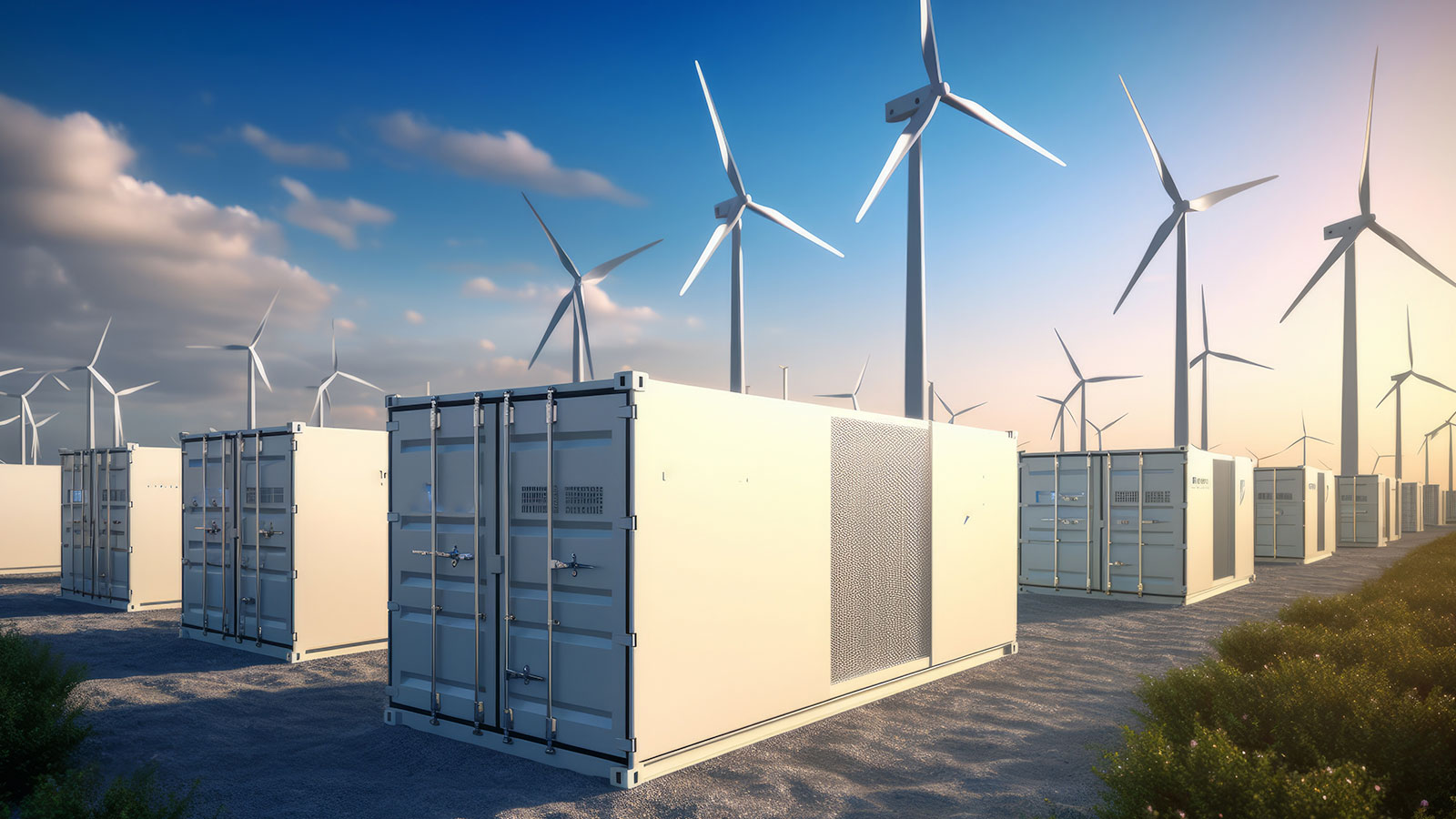Batteries that used to power Jaguar I-Pace vehicles will soon be used to store excess solar and wind power for later use in the national grid.
Jaguar Land Rover has partnered with Wykes Engineering to supply second-life Jaguar I-Pace batteries, which will serve as the basis for Wykes’ new battery energy storage system.
Most battery energy storage systems on the market currently use newly-constructed lithium-ion batteries to store energy, which while great for capacity, comes at a cost. That’s because the demand for lithium-ion batteries has soared in recent years, and many are concerned about the future of these batteries as many are destined for landfill.
Thankfully, there is a solution that could prevent EV batteries from heading to landfill – and it’s one that both Wykes Engineering and Jaguar Land Rover are leaning into. This involves removing the lithium-ion batteries from old electric vehicles and placing them into static storage.
What is Wykes Engineering’s new battery energy storage system?
Wykes Engineering’s new battery energy storage system utilises 30 second-life I-Pace batteries in each container. As part of its collaboration with Jaguar Land Rover, these batteries require no additional manufacturing steps or the removal of battery modules in order to be installed. In fact, the batteries are simply removed from the Jaguar I-Pace and slotted into the racks in the containers on-site.
Collectively, these batteries can store up to 2.5 MWh of energy at full capacity. That compares favourably to some other battery energy storage systems currently on the market, including the original Tesla Megapack, which offered 2.6 MWh.
Each battery energy storage system, which is linked to an advanced inverter to maximise efficiency and manage energy, is capable of supplying power direct to the National Grid during peak hours as well as drawing power out of the grid during off-peak hours to store for future use.
Jaguar Land Rover has committed to supplying enough batteries to store a total of 7.5 MWh of energy – enough to power 750 homes for a day – by the end of 2023. That means Wykes will be able to build just shy of three containers by the end of the year.
While three containers doesn’t sound like a lot, Jaguar Land Rover is currently only supplying batteries from old prototype and testing vehicles. The company says that it hopes to be able to supply more batteries in the future as batteries are removed from used production vehicles in the future.
François Dossa, Executive Director, Strategy and Sustainability at Jaguar Land Rover, noted, “Our sustainability approach addresses the entire value chain of our vehicles, including circularity of EV batteries. Our EV batteries are engineered to the highest standards and this innovative project, in collaboration with Wykes Engineering, proves they can be safely reused for energy sector application to increase renewable energy opportunities. Using the 70-80% residual capacity in EV batteries, before being recycled, demonstrates full adoption of circularity principles.
“Working together with industry-leading partners, we are developing a complete EV ecosystem, from batteries to charging, supporting our net-zero transformation.”
David Wykes, Managing Director of Wykes Engineering, added, “One of the major benefits of the system we’ve developed is that the containers are connected to the Grid in such a way that they can absorb solar energy that could otherwise be lost when the grid reaches capacity. This excess energy can now be stored in the second life I-PACE batteries and discharged later. This allows us to ‘overplant’ the solar park and maximise the amount of power we generate for the area of land we are using.”

